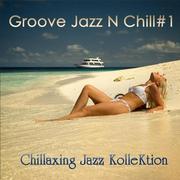Lauryn Hill
| 基本信息 | |||
|---|---|---|---|
| 姓名 | Lauryn Hill | 别名 | 暂无 |
| 国籍 | 美国 | 出生地 | 纽泽西州 |
| 语言 | 英语 | 性别 | 女 |
| 生日 | 1975-05-26 | 星座 | 双子座 |
| 身高 | 体重 | ||
纽泽西州的萝伦希尔原本以「修女也疯狂2」向好莱坞投石问路,Fugees乐团96年全球畅销1700万张大碟「The Score」转而让人惊艳于她的歌唱功力,98年秋初发行的首张专辑「The Miseducation Of Lauryn Hill」无疑地将这位对艺术的平面、词曲、影像、唱作具有多元深究的女子推向乐坛的顶端,萝伦希尔以贴身的社会人文观察唱作风格点亮了黑人街头节奏时尚的新方向,专辑全美首周大破40万张改写女歌手首周销货纪录,发行首周空降美、英排行冠、亚军,「Doo Wop (That Thing)」、「Ex-Factor」分别跃登美、英单曲榜冠军、TOP 4,99年独揽葛莱美奖10项大奖提名,并勇夺年度专辑、新进艺人、最佳节奏蓝调女歌手、最佳节奏蓝调歌曲、专辑5项大奖,与Alicia Keys并列为葛莱美奖史上单届获奖最多的女艺人,4座MTV音乐录像带、4座灵魂列车音乐奖、3座灵魂女声奖…等奖声此起彼落,处女大碟的传媒喝采声绵延,娱乐周刊圈选为90年代最重要专辑亚军,滚石、Spin杂志列名90年代最重要专辑之一,Q杂志评为史上最棒50张专辑之一。饶舌先锋劲旅Public Enemy核心人物Chuck D更赞许\\'萝伦希尔是21世纪的Bob Marley与阳光'。 将内心对自我与社会周遭的感触化作笔下的文字,再透过歌声传达文字的情感,萝伦希尔的不插电演唱更进一步将歌声情感直接带到乐迷面前,2002年5月推出的年度大碟【MTV Unplugged No.2.0】是2001年夏季应MTV频道之邀所作的现场演唱,萝伦希望藉由麦克风直接传达歌声情感,并在每一首最新发表的创作演唱前与乐迷分享创作之所思所见,无论是体认自我价值、戳破社会假像、畅谈人生道理,期盼乐迷能花点时间把她的歌词情感反复咀嚼,体悟人生最真实、最沉重的情感,藉由自我情感的分享,提醒世人要能诚实面对灵魂,试着去解脱灵魂的枷锁,赋予灵魂的真正价值,「I Find It Hard To Say (Rebel)」是她在听到纽约警察枪杀手无寸铁的平民Amadou Diallo的新闻后,对叛逆情绪的挣扎迷思、「Freedom Time」有对自由的省思、「Just Want You Around」揪出没人作伴的寂寞、「I Gotta Find Peace Of Mind」感人倾诉寻找片刻宁静、沉淀真我的可贵、「I Get Out」随性道出挣脱束缚的诸多感受、「I Remember」里赤裸面对自我。请真实面对你的灵魂,就如同萝伦希尔真实面对她的灵魂一样。 Call Lauryn Hill the mother of hip-hop invention; with her 1998 solo debut The Miseducation of Lauryn Hill, the Fugees' most vocal member not only established herself as creative force on her own, but also broke new ground by successfully integrating rap, soul, reggae, and R&B into her own sound. Raised in South Orange, NJ, Hill spent her youth listening her parents' multi-genre, multi-generational record collection. She began singing at an early age, and was soon snagging minor roles on television (As the World Turns) and in film (Sister Act II: Back in the Habit). Her on-again, off-again stint in the Fugees began at the age of 13, but was often interrupted by both the acting gigs and her enrollment at Columbia University. After developing a following in the tri-state area, the group's first release — the much-hyped but uneven Blunted on Reality — bombed, almost causing a breakup. But with the multi-platinum The Score, the Fugees (and especially the camera-friendly Hill) achieved international success, though some pundits took shots at their penchant for cover songs. That criticism made Miseducation even more of a surprise. Hill wrote, arranged, or produced just about every track on the album, which is steeped in her old-school background, both musically (the Motown-esque singalong of "Doo Wop (That Thing)") and lyrically (the nostalgic "Every Ghetto, Every City"). As Miseducation began a long reign on the charts through most of the fall and winter of 1998 — initially thanks to heavy buzz and overwhelming radio support for "Doo Wop (That Thing)" — Hill became a national media icon, as magazines ranging from Time to Esquire to Teen People vied to put her on the cover. By the end of the year, as the album topped virtually every major music critic's best-of list, she was being credited for helping fully assimilate hip-hop into mainstream music. (Such an analysis, however, is lightweight at best: Hip-hop had been a huge force on the sales and radio fronts for most of the decade, and rappers Jay-Z, DMX, and Outkast had dropped similarly lauded LPs prior to or just after Miseducation's release, adding to the genre's dominant sales for the year). The momentum finally culminated at the February 1999 Grammy awards, during which Hill took home five trophies from her 11 nominations, including Album of the Year, Best New Artist, Best Female R&B Vocal Performance, Best R&B Song, and Best R&B Album; the most ever for a woman. Shortly after, she launched a highly praised national tour with Atlanta rappers Outkast. Hill also faced a lawsuit from two musicians who claim they were denied full credit for their work on the album. In an interesting twist, Hill's album proved to be such a commercial and critical success that it shed doubt on the Fugees' future. Their in-fighting became common knowledge, and matters were complicated when many fans interpreted Miseducation's various anti-stardom rants as a public dissing of co-Fugee Wyclef Jean. She did continue shaping her solo career. The double-disc MTV Unplugged No. 2.0 appeared in spring 2002, showcasing a deeply personal performance from Hill.
 加载评论内容,请稍等......
加载评论内容,请稍等......













